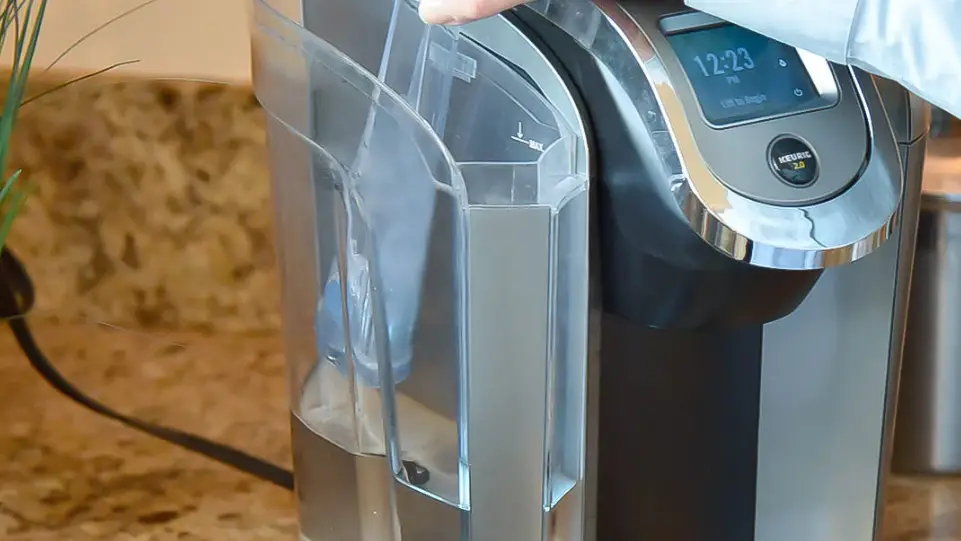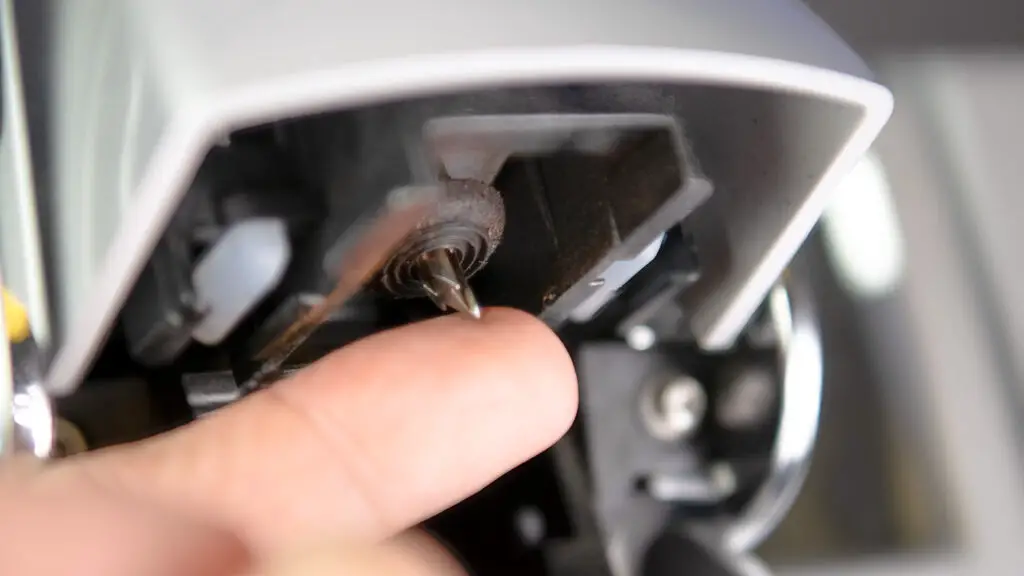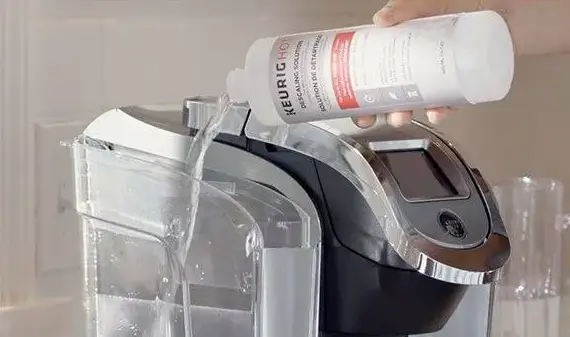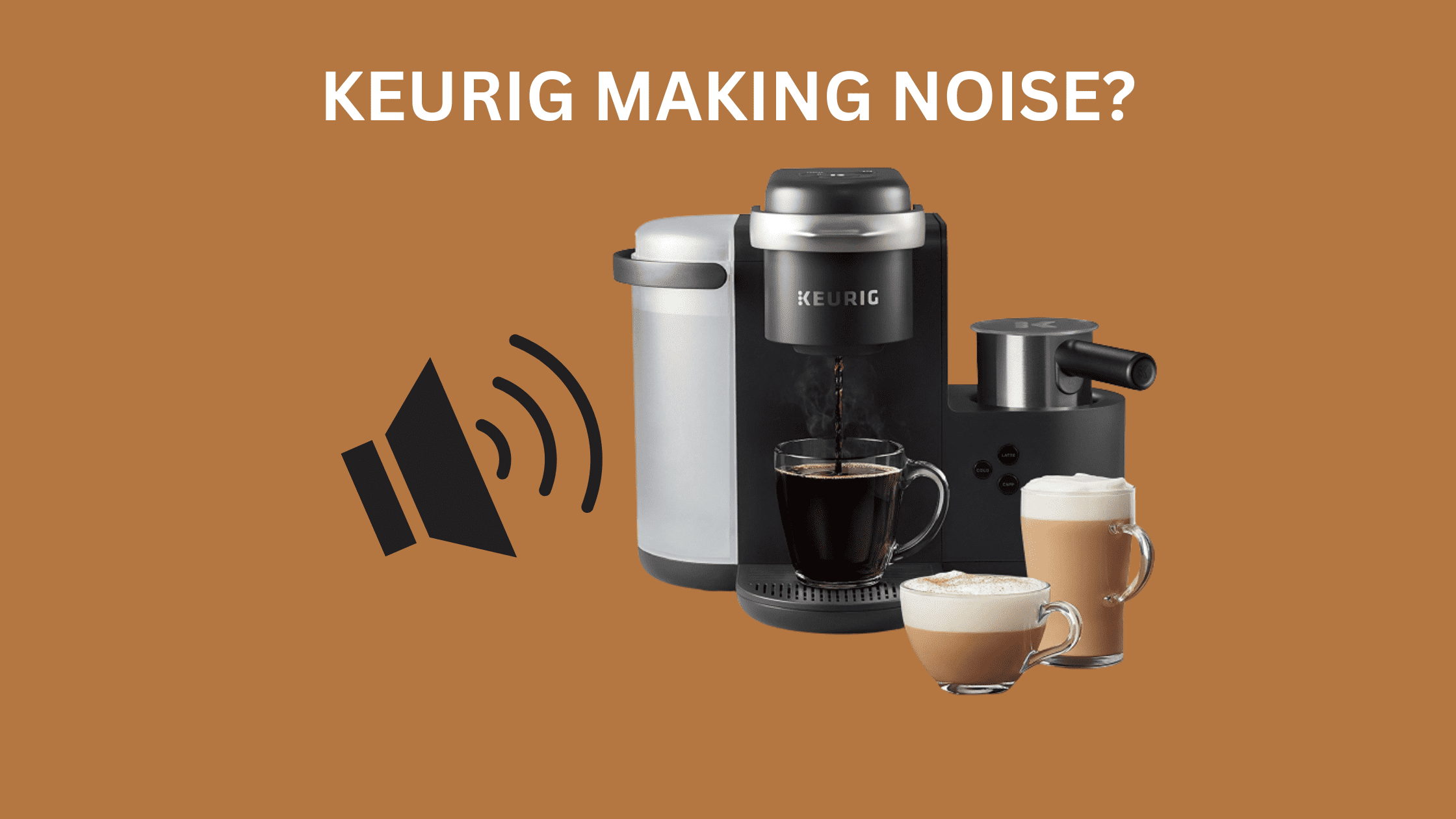Is your beloved Keurig suddenly making strange noises that have you worried?
A peaceful morning routine can quickly turn into a noisy, confusing experience when your coffee maker starts acting up.
But fear not! In this blog post, we’ll explore the possible reasons behind your Keurig’s unusual sounds and provide you with some practical troubleshooting steps to help you identify and resolve the issue.
Your Keurig coffee maker may be making noise due to various reasons, such as dirty needles, mineral deposits, a broken water pump, or air trapped in the machine.
Cleaning the needles, descaling the machine, checking the water pump, and ensuring a stable surface can help resolve these issues and restore quiet operation to your Keurig.
So, if you’re ready to restore tranquility to your coffee brewing process, let’s dive in and get your Keurig back to its whisper-quiet self!

Troubleshooting Common Keurig Noises and Solutions
Keurig coffee makers are renowned for their convenience and ability to deliver a quick and delicious cup of coffee.
However, like any appliance, Keurigs can occasionally encounter issues that disrupt the peaceful brewing process, such as making strange noises.
In this subsection, we will explore some common Keurig noises and provide you with practical troubleshooting solutions to address them.
Placing Your Keurig on a Stable Surface
Before diving into troubleshooting your Keurig, it’s essential to examine the surface on which you have positioned your coffee machine.
Often, the presence of rough, hard, or uneven surfaces like concrete, granite, or tiles can lead to vibrations and rattling during the brewing process.
To address this issue, there are a few simple solutions.
You can place a piece of Styrofoam, a rubber plate, a mouse pad, or a corkboard under the Keurig to act as a cushion and minimize vibrations.
Alternatively, you can purchase sticky rubber circles available on platforms like Amazon to elevate the coffee maker by attaching them to the bottom of the brewer.
While these measures may not completely eliminate rattling, they effectively dampen the noise and ensure a more stable brewing experience.
Residual water

Clearing Out Remaining Water If your Keurig is making noise even when it’s unplugged, it could be due to residual water in the system.
To address this, ensure that the water reservoir is empty and run a brewing cycle to flush out any lingering water.
Dirty needle

Eliminating Clicking Noises A common cause of clicking noises in a Keurig is a dirty needle.
If coffee grounds or debris clog the needle that pierces the K-cup, it can lead to clicking sounds.
To resolve this issue, take a paper clip or a similar pointy object and gently wiggle it in the three holes adjacent to the needle.
This action helps dislodge any blockages and restores proper functionality.
Mineral deposits

Descaling to Reduce Noise For Keurigs in use for over six months without descaling, loud brewing noises may stem from mineral deposits.
Descaling the machine with a mixture of vinegar and water helps remove built-up minerals and reduces noise.
This process effectively restores the smooth operation of the coffee maker.
Also, you should always be using filtered water as this will help decrease mineral content and also decrease mineral buildup in the coffee maker.
Broken water pump
Addressing Pump Issues A broken water pump can also contribute to excessive noise in a Keurig.
If the water pump or pipe is damaged internally, it can cause loud noises during operation or result in inadequate coffee production.
To tackle this problem, employ a turkey baster or a similar device capable of sucking up and pumping water.
Fill the water tank, insert the baster into the water inlet of the coffee maker, and give it a few gentle pumps.
This action helps clear out scale buildup in the water pump and enhances its performance.
Finally, rinse the coffee maker with fresh water by pressing the brew button several times to ensure proper functionality.
Air in the machine
When a Keurig emits a grinding noise without pumping water, it may indicate the presence of air in the system, hindering the pump’s ability to prime.
Cleaning the opening with a dishtowel to remove any obstructions should alleviate this problem, allowing the Keurig water pump to function correctly.
Keurig Noises After Brewing
Normal Operation It is normal for a Keurig coffee maker, especially the K-mini model, to make faint noises after brewing a cup of coffee.
These sounds result from the movement of water and air in the internal tubes and indicate the release of residual pressure.
Even if the machine is unplugged, these subtle noises may persist.
Keurig Making Noise but Not Brewing
Troubleshooting Blockages If your Keurig emits its usual brewing sound but fails to dispense coffee, a blockage may be the culprit.
If previous unclogging attempts have not resolved the issue, try this method.
Older Keurig models possess a small overflow dispenser above the water tank.
When the coffee maker is slightly clogged, water or air may escape through this overflow hole.
Simply close the overflow hole with your finger and press the brew button to redirect the water and air flow through the coffee maker, eliminating any blockages.
Once completed, your Keurig should be able to brew a cup of coffee again.
Last Resort
Contacting Keurig Customer Support If you have attempted all the troubleshooting techniques above, but your Keurig continues to produce unusual noises, it is possible that an internal component is broken.
In such cases, it is advisable to reach out to Keurig’s customer support.
They can provide further assistance, offer additional solutions, or arrange for repair or replacement if your Keurig is still under warranty.
Remember, properly maintaining and cleaning your Keurig can help prevent noise issues and ensure a smooth brewing experience.
Conclusion
If you’ve been puzzled by the unusual noises coming from your Keurig coffee maker, understanding the potential causes and implementing the appropriate solutions can bring back peace and tranquility to your brewing experience.
From addressing dirty needles and mineral deposits to tackling issues with the water pump and air in the machine, this troubleshooting guide has provided you with practical steps to resolve common Keurig noise problems.
Remember to check the surface where your Keurig is placed, ensuring it is stable and free from vibrations.
Regular cleaning and descaling, as well as proper maintenance, can go a long way in preventing noise-related issues and ensuring the longevity of your Keurig.
If you’ve exhausted all the troubleshooting steps and your Keurig continues to make unusual noises, contacting Keurig customer support is recommended.
They can offer further guidance or assist with repair or replacement options if necessary.
FAQ’s
Why is my Keurig making a sputtering noise?
If you’re experiencing a sputtering noise from your Keurig, it could be due to clogged needles. This can cause the machine to operate slowly or brew partial cups of coffee.
Cleaning the needles is a quick and straightforward process that should only take about 5 minutes.
Why is my Keurig making a high-pitched sound?
If your Keurig is producing a high-pitched sound, it could be due to scale build-up in the tubing. To resolve this issue, you can clean the Keurig by using white vinegar.
How do you tell if your Keurig is clogged?
You can tell if your Keurig is clogged if it stops brewing full cups of coffee, makes strange noises or sputters, or takes longer than usual to brew a cup of coffee.
Why is my Keurig making a weird noise?
If your Keurig is making a strange noise that is louder than usual, it could be due to the surface it is placed on being too hard.


